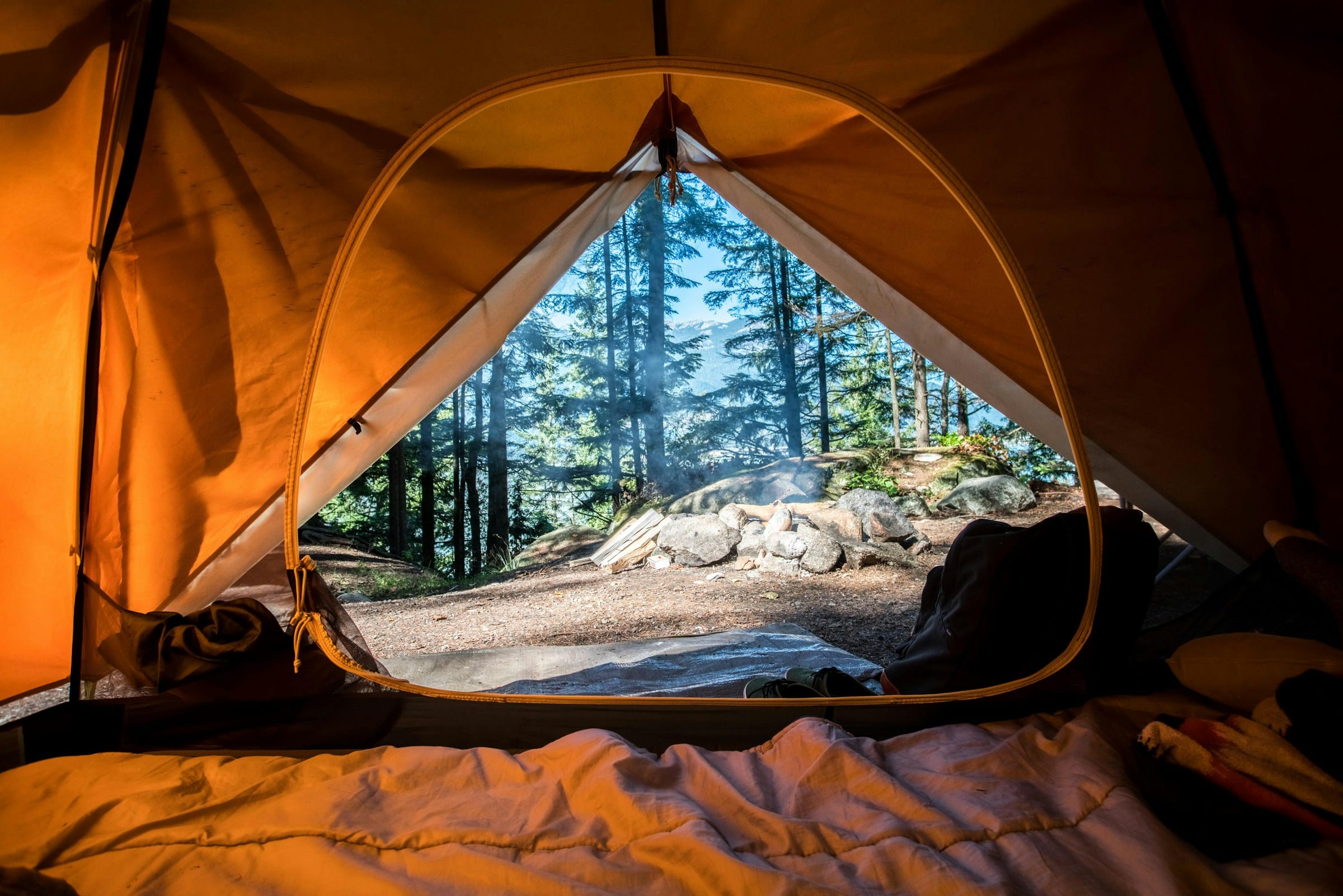How to camp sustainably near UK wildlife reserves?

Camping is an exhilarating way to disconnect from the hustle and bustle of everyday life, allowing you to get close to nature and enjoy the serenity of the great outdoors. In today's world, however, it's not just about setting up a tent and starting a fire. You have a responsibility to the environment, to ensure that your actions during your camping trip are eco-friendly and sustainable. This is particularly important when camping near wildlife reserves, as these areas are home to a variety of species and ecosystems that need to be preserved. In this article, we'll explore how to camp sustainably near UK wildlife reserves, with particular emphasis on some of the best campsites in Scotland.
Choose an Eco-Friendly Campsite
When planning your camping trip, the first step should be to select a campsite that prioritizes sustainability and eco-friendly practices. These campsites often have measures in place to minimize environmental impact, such as recycling programs, composting facilities, and policies that encourage campers to minimize waste and conserve resources.
En parallèle : What are the most scenic routes for motorhome camping in the UK?
In Scotland, for instance, you will find a number of environmentally-friendly campsites that are close to nature reserves. Comrie Croft is a shining example of a campsite that takes green camping to the next level. Nestled in the heart of Perthshire, this eco-friendly campsite encourages campers to leave no trace, provides facilities for recycling, and even has a nature trail within its grounds.
Another excellent option is the Eco Camp Glenshee, which is located near the Cairngorms National Park. Here, you'll be able to sleep under the stars in a sustainable way, with low-impact camping pods made from recycled materials and composting toilets.
A lire également : What advice would you give for photographing wildlife during a UK camping trip?
Pack Light and Pack Right
Now that you've chosen your eco-friendly campsite, the next step is to consider what you'll bring with you on your trip. When packing for a camping trip, especially one that involves hiking to your campsite, it's crucial to pack light. But packing light doesn't just mean bringing fewer items; it also means choosing items that are environmentally friendly and can be used sustainably throughout your trip.
For instance, instead of disposable water bottles, opt for a reusable water bottle that you can fill up at the campsite. Instead of single-use plastic bags, bring reusable bags or containers for your food and other items. Even the tent you choose can be eco-friendly - look for tents made from sustainable materials, and be sure to care for it properly so that it lasts for many camping trips to come.
Respect the Wildlife
As you're camping close to a wildlife reserve, it's crucial to keep in mind that you're a guest in the home of countless species of animals and plants. As such, it's your responsibility to minimize your impact on their habitats and to respect their needs.
This means keeping a safe distance from any wildlife you encounter, and never feeding wild animals. Remember, human food is not suitable for wildlife and can cause serious health problems for them. Instead, take the opportunity to observe these creatures in their natural habitats, and appreciate the beauty and diversity of the wildlife that calls these reserves home.
Be aware also of the potential impact of noise on wildlife. Keep the volume of your activities low, and avoid playing loud music or creating other disturbances that could disrupt animals or birds.
Leave No Trace
The 'Leave No Trace' principle is a central tenet of sustainable camping. In essence, it means that when you leave your campsite, it should look as though you were never there. This is particularly important when camping near wildlife reserves, as any litter or damage can have a serious impact on local ecosystems.
So, take all of your rubbish with you when you leave, and avoid disturbing natural features like rocks, plants and trees. If you've made a fire, ensure that it's fully extinguished before you leave. Also, consider taking along a bag to collect any litter you find during your stay - it's an easy way to contribute to the cleanliness and preservation of the environment.
Remember, camping sustainably isn't just about reducing your own impact - it's also about setting a positive example for others. By demonstrating respect for the environment and wildlife, you're helping to promote a culture of sustainability that will ensure these beautiful places can be enjoyed by generations to come.
Follow the Outdoor Access Code
When camping in Scotland, it is vital to adhere to the Outdoor Access Code. This code, established by Scottish Natural Heritage, provides guidelines for enjoying the countryside responsibly. By respecting the code, you can ensure that your camping trip doesn't negatively impact the local environment or wildlife.
The Outdoor Access Code encourages "wild camping". This kind of camping is lightweight, done in small numbers and only for two or three nights in any one place. Act in accordance with the code when wild camping near wildlife reserves, and always aim to be invisible to others.
Also, the code advises not to camp in enclosed fields of crops or farm animals and to keep away from buildings, roads or historic structures. Always ensure that your camping activities do not cause any damage or create unnecessary disturbance. It's all about being mindful of your surroundings and respecting the land you are using.
Furthermore, the code recommends campers to take extra care during the bird breeding season, which runs from April to July. Be cautious not to disturb birds, their nests or young ones during this time.
Lastly, don’t forget to be considerate when you need to relieve yourself. The Code suggests that you should do so at least 30 metres from open water or rivers and be sure to bury your waste.
Choose the Right Camping Gear
Selecting the right gear is critical when planning a sustainable camping trip. Your choices can significantly impact the environment, and it’s essential to opt for items that are eco-friendly and durable.
Sleeping bags are a camping essential, but not all are created equal. Look for a sleeping bag that is made from sustainable, ethically-sourced materials. Some environmentally-friendly sleeping bags are even made from recycled materials, which help to reduce waste.
Tents are another crucial piece of camping gear. When selecting a tent, consider its longevity and the materials used in its construction. Many eco-friendly tents are made from recycled materials, while others are designed to be extremely durable, reducing the need for replacement and thus minimising waste.
If you plan to cook during your camping trip, consider bringing a portable camping stove. This is a far more sustainable option than building a fire, which can cause damage to the ground and poses a wildfire risk, particularly in dry conditions. Bring a refillable gas canister for your stove, instead of disposable ones, to minimise your waste.
Conclusion
Your adventure of camping near UK's wildlife reserves can be a thrilling experience. But remember, it's not just a fun holiday, it's also an opportunity to respect and protect the environment. By following the provided tips, you can ensure that your camping trip is eco-friendly and sustainable.
Choosing eco-friendly campsites, packing appropriately, respecting the wildlife and leaving no trace are all key elements of sustainable camping. Furthermore, adhering to the Outdoor Access Code whilst camping in Scotland and choosing the right camping gear also plays a significant role in ensuring your trip is environmentally friendly.
Sustainable camping is not only about your enjoyment but also about preserving these precious spaces for generations to come. So, the next time you're planning a camping trip, remember to camp sustainably and encourage others to do the same. After all, we are merely visitors in nature’s home and it is our responsibility to leave it untouched.
